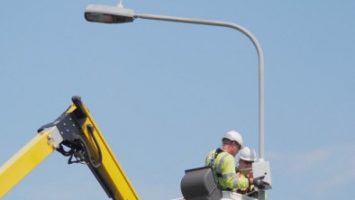
The Flanders Institute for Logistics (VIL), the innovation platform for the logistics sector, recently launched the Intello City project with the aim of examining how the Internet of Things (IoT) could help optimize logistical organization in the cities of Flanders. Intello City is a partnership between VIL and imec, and will use the existing IoT infrastructure of the City of Antwerp.
Areas to be researched include the optimization of delivery times, the delivery location, and optimization of returns. It is expected that this would lead to improved efficiency for logistics service providers and shippers, greater customer satisfaction, and less congestion for the city.
A potential example, for instance, would provide a delivery driver with a constantly updated route, based on data received, and instantly analyzed regarding traffic flow, parking spaces, weather reports, etc.
In-transit visibility is a major factor in the potential uses of IoT and logistical planning. As products are handled and transferred, the ability to receive identification, location, and other tracking information is vital. Using cloud-based GPS and Radio Frequency Identification (RFID) technologies would provide supply chain professionals with the knowledge required to automate shipping and delivery by exactly predicting the time of arrival and to monitor important details like temperature control on-hand product supply.
IoT can also play a role in health and safety, preventing potential collisions and alerting drivers when they need to take a break. Cameras in the vehicle can monitor driver fatigue by tracking key indicators such as pupil size and blink frequency. If the system senses a driver is losing attention on the road, it activates audio alarms and seat vibrations.


